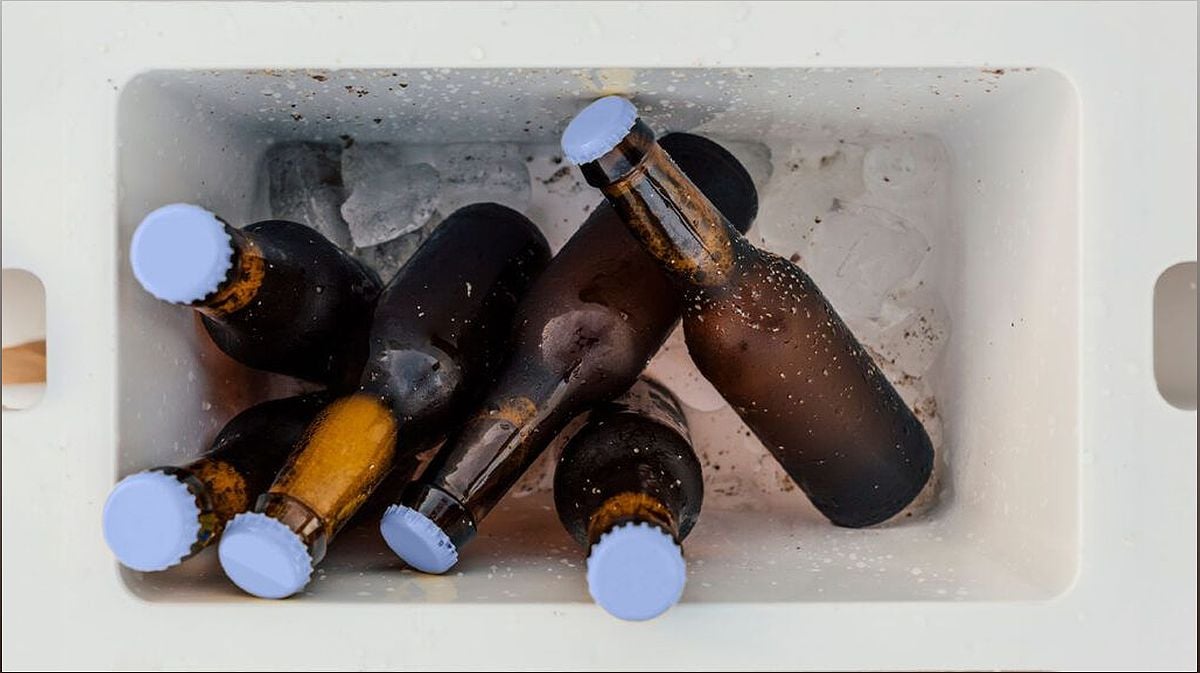The Impact of Binge-Drinking on Liver Health: A Study Reveals Surprising Findings
A recent study conducted by University College London sheds light on the impact of binge-drinking on liver health. Contrary to popular belief, the study reveals that a single night of heavy drinking poses a greater risk to liver health than moderate drinking spread across the week. The study, which analyzed data from over 300,000 active alcoholic drinkers in the UK, found that the pattern of alcohol intake is a better indicator of the risk of developing alcohol-related cirrhosis (ARC) than the volume alone. Those who engaged in heavy binge-drinking, defined as consuming 12 units of alcohol in a day, were three times more likely to develop ARC. Furthermore, individuals with a high genetic predisposition or type-2 diabetes faced an even higher risk. The study highlights the importance of understanding the risks associated with excessive alcohol consumption and emphasizes the need for responsible drinking habits to maintain liver health.
The Impact of Binge-Drinking on Liver Health
Binge-drinking has long been associated with negative health consequences, but this study delves deeper into its impact on liver health. The findings reveal that a single night of heavy drinking can have significant repercussions on the liver, increasing the risk of developing alcohol-related cirrhosis (ARC).

The study, conducted by University College London, analyzed data from over 300,000 active alcoholic drinkers in the UK. It found that the pattern of alcohol intake, rather than the volume alone, is a better predictor of ARC. This highlights the importance of understanding the risks associated with binge-drinking and adopting responsible drinking habits.
The Role of Genetic Predisposition
Genetic predisposition plays a significant role in determining an individual’s susceptibility to liver disease. The study revealed that individuals with a high genetic predisposition faced a four-fold increase in the risk of developing alcohol-related cirrhosis (ARC) compared to those without such predisposition.

Understanding the genetic factors that contribute to liver disease risk can help identify individuals who may be more vulnerable. This knowledge can empower healthcare professionals to provide targeted interventions and support to mitigate the risks associated with alcohol consumption.
The Impact of Type-2 Diabetes
Type-2 diabetes is a well-known risk factor for various health complications, and this study highlights its association with liver disease. The research found that individuals with type-2 diabetes were twice as likely to develop alcohol-related cirrhosis (ARC) compared to those without diabetes.

Managing diabetes is crucial not only for overall health but also for liver health. By effectively managing blood sugar levels and adopting a healthy lifestyle, individuals with diabetes can reduce their risk of developing ARC and other liver-related complications.
The Combined Risk of Binge-Drinking and Genetic Predisposition
The study’s most striking finding was the significantly increased risk when individuals engaged in binge-drinking while also having a genetic predisposition. Those who fell into this category were six times more likely to develop alcohol-related cirrhosis (ARC) compared to individuals without these factors.

This highlights the importance of considering both lifestyle choices and genetic factors when assessing an individual’s risk of liver disease. It emphasizes the need for personalized interventions and support to reduce the risks associated with alcohol consumption for those with a genetic predisposition.
The Importance of Responsible Drinking Habits
This study underscores the significance of responsible drinking habits in maintaining liver health. Excessive alcohol consumption, particularly binge-drinking, can have serious consequences for the liver. It is essential to prioritize moderation, pace alcohol consumption, and avoid drinking to the point of intoxication.
By adopting responsible drinking habits, individuals can reduce their risk of developing alcohol-related cirrhosis (ARC) and other liver diseases. It is crucial to be mindful of one’s alcohol intake and seek support if needed to ensure long-term liver health.
